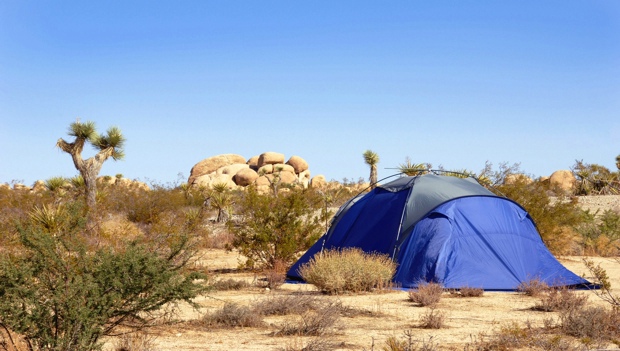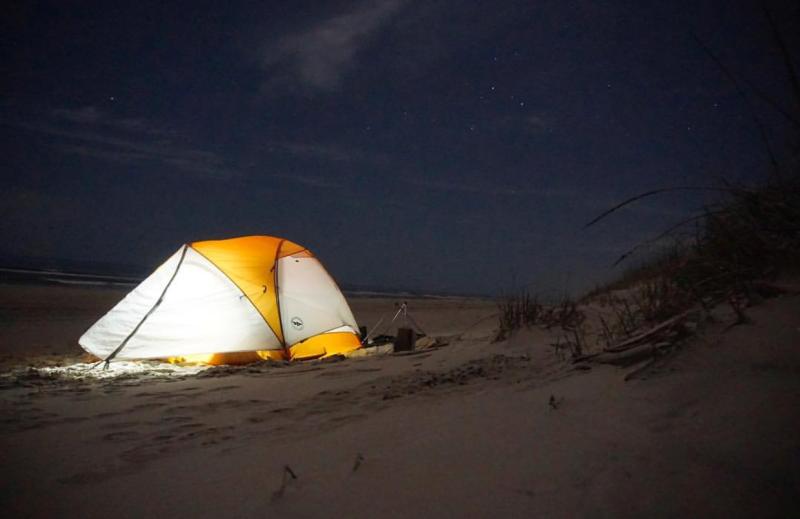Basic Camping Tips According to Environment
Camping is intended to be a pleasant and memorable experience. However, if you're not well trained for where you're headed, things can take a sharp, wrong turn. Take the time to figure out where you are headed, the weather, the conditions and the services available.
Also, if you're camping on the Appalachians “relatively” gentle slopes or the Rockies' maximum peaks, the one general rule is to always pitch your tent on the leeward side of the mountain. There's slightly less wind and the atmosphere appears to be a bit gentler, making you less susceptible to Mother Nature's fury.

Mountain Camping
It is one of the greatest ways to get a close-up view of the best peaks. Enjoy the calmness, scenic views and clean air that comes with mountains. That being said, inexperienced mountain camping can be challenging. Mountain camping can be extremely difficult when it comes to forecasting the weather. While your back garden maybe 70 degrees, most peaks tend to have year-round snow deposits, and night levels may drop well below freezing.
The valley forecast can be significantly different from the forecast in the mountains an hour away. We suggest contacting the national park or state office to inquire about the weather, to be sure.
The trick to keeping healthy in higher altitude environments, specifically if you enjoy hiking on your camping trips, is to drink plenty of water to prevent dehydration and ensure that your electrolytes stay balanced all around. We highly recommend water and potassium-high food such as bananas. These two may help to fend off fatigue and the muscle cramps most mountain campers come across. Also, make a schedule for what you will eat and how you will cook when camping out. This will save a great deal of time and energy for you.
Even on the leeward side of a mountain, you should expect winds in elevated places to be stronger than they will be nearer to sea level. Stuff that you wouldn't typically tie or stake down (such as napkins, plastic sheeting, etc.) possibly need to be protected at some point. Try to ensure that you have the additional supplies to do so, as it will solve your problems at the campsite much better.
The air is dryer and the sunshine in mountainous regions appears to be more powerful. Such areas, also in winter, are infamous for inducing sunburn and dryness. So make sure to put along with some sunscreen and aloe, no matter what time of year you've scheduled a camping trip into the mountains.

Desert Camping
Sure, the desert can be a harsh camping environment. At first, tourists from other climates may be scared off by the extreme temperatures and rare native species and may require some time to get accustomed to the environment. There are unbelievable desert resorts all around the world.
It's hard to overcome the elegance of the desert, but the fact is that it's a rough, somewhat inhospitable environment not to be taken lightly. If you aren't vigilant, you can end up ill, wounded, or even worse. However, as long as precautions are taken to prepare for life in this unwelcoming location, the desert can be a wonderful place to experience.
The most serious threat to campers in the desert is dehydration. The desert is a hot location, and the last thing you want to do is run out of water. Packaging one gallon of drinking water per person per day is a successful rule to follow. Remember to bring extra for personal hygiene requirements and cookware cleaning. If it appears you've packed so many, then you're definitely on the right route. Even a trusty water filter can be a smart investment.
The deserts are frequently sunny during the day, and cool at night, owing to their low humidity. The temperature can also fall below zero in some cases. Warm clothes and some extra blankets can go a long way to make you feel relaxed after sunset.
Since the strength of the sun is an issue, put your tent in a shaded location if at all practicable. The layout of your tent is another thing to consider. Using a lighter color floor, and an opaque fly may help prevent producing unnecessary heat inside the tent.

Beach Camping
If you're not used to some of the complexities, camping on a beach can be a challenge. You have a specific range of conditions that may come about while camping on a beach or near the water. The light, breeze, and rain can most of all impact your experience. If you're on a campsite then it's better than actually putting a tent on a beach. There will most likely be all types of facilities and your campsite will be equipped for beach camping.
Preventing the sand from coming in is easier than getting it out of your tent or sleeping bag. Lay beneath your tent an enormous tarp so you have extra space to slip off your shoes. Brush your feet off before going into the tent. Be particularly cautious about campfire safety when you are in an area of brush because the dry environment can be a fire hazard. To extinguish it, you should not cover the fire with sand. You also have to use water to extinguish the campfire. The embers will continue burning and somebody may step in that area.
Forest Camping
Camping in the woods has become ever-popular and several spectacular camping sites are stretched everywhere. Forest camping gives you the chance to stay in the middle of the wilderness, and whether you choose a dedicated camping site or choose a backcountry camping spot, there are plenty of wonderful places to go.
Forest camping can get chilly at night, even during the summer season. As such, you have to make sure that you bring sleeping bags that will keep you well secured from any drop in temperature. Whether you or someone you're with has an injury, having the knowledge to wash and bandage a wound would be valuable.
If you're camping with a dog it's a wise idea to bring a specific first aid kit. If you intend on camping in the forest, you may need to consider how to cook. Maybe there's a small neighborhood nearby where you can shop, but otherwise, you must bring all your food and cooking tools with you.

Leave a comment